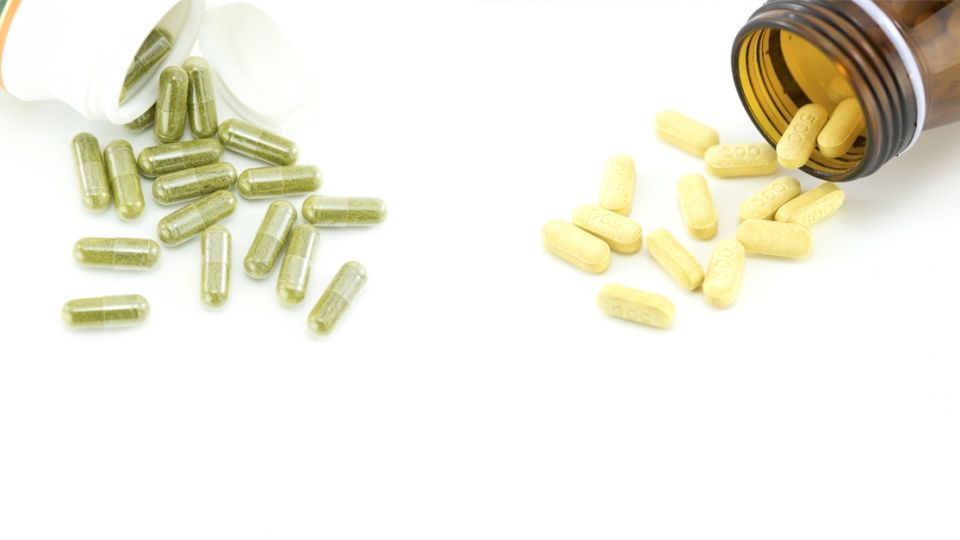
Non-steroidal anti-inflammatory drugs (NSAIDs) are considered the ‘gold standard’ for handling the pain of osteoarthritis, but two natural compounds may be even more effective in treating the degenerative joint disease – and without potentially life-threatening side-effects.
Here’s how the evidence stacks up for glucosamine and chondroitin vs some of the more commonly used NSAIDs for arthritis: celecoxib, ibuprofen and diclofenac.
Supplement facts
Glucosamine is the major building block of proteoglycans, large molecules in cartilage that give it its elastic and protective properties, maintaining joint lubrication and flexibility by trapping water in the cartilage matrix. Chondroitin, an even larger cartilage molecule, also helps maintain joint fluidity, while slowing cartilage destruction and helping with its repair.1
As supplements, glucosamine is usually derived from shellfish, while chondroitin is from cow cartilage.
Supplements vs celecoxib
In a recent trial of 600 osteoarthritis patients conducted all over Europe, a chondroitin and glucosamine combo was pitted against celecoxib, one of the major COX-2 inhibitor drugs.The supplements worked as well as the COX-2 drug: both groups saw a more than 50 per cent reduction in joint swelling, with similar improvements in joint pain, stiffness and function after six months.2
And when 54 trials involving more than 16,000 patients were pooled together, glucosamine and chondroitin, either alone or together, were just as effective as celecoxib for relieving painful knee osteoathritis, although only the supplement combo significantly improved joint function and led to a marked improvement in the knee joint-space narrowing commonly seen in the condition.3
Chondroitin alone also beat celecoxib at reducing cartilage loss in knee osteoarthritis, although both pills were equally good at easing pain and improving function.4
Supplements vs ibuprofen
Glucosamine also wins out against ibuprofen as a painkiller for treating osteoarthritis. In one study, patients with temporomandibular joint (TMJ) disorders treated with glucosamine had less pain and difficulty opening their mouths than those treated with the common painkiller.5
While ibuprofen may be more effective in the short-term for osteoarthritis, according to some studies, glucosamine takes the victory in the long run.1
Supplements vs diclofenac
Diclofenac, another popular NSAID, may work faster than chondroitin, at least according to a small, high-quality trial treating patients with knee osteoarthritis, but symptoms reappeared as soon as the drug was stopped.
In contrast, with chondroitin, improvements in symptoms continued for three months after the treatment came to an end.6
Side-effects
Both chondroitin and glucosamine have good safety profiles,7 while NSAIDs have been linked to serious adverse effects – from stomach problems like bleeding and ulcers to potentially fatal cardiovascular events.
Those prescribed celecoxib, for instance, face up to nearly three and a half times the risk of dying from a heart attack.8
In fact, some 100,000 patients are hospitalized annually for NSAID-related gastrointestinal complications and at least 16,500 NSAID-related deaths occur each year among arthritis patients alone.9
And the winner is…
No contest here. Although they take a little longer to work, glucosamine and chondroitin deliver as much painkilling and anti-inflammatory action as the standard NSAIDs, and even actually improve joint function and reduce cartilage loss – all without serious side-effects.
Suggested daily dosages: up to 3,200 mg of glucosamine sulphate; up to 3,600 mg of chondroitin sulphate
|
References |
|
|
1 |
Altern Med Rev, 2004; 9: 275–96 |
|
2 |
Ann Rheum Dis, 2016; 75: 37–44 |
|
3 |
Sci Rep, 2015; 5: 16827 |
|
4 |
Arthritis Rheumatol, 2015; 67 [S10]: 1–4046 (abstr 950) |
|
5 |
J Res Pharm Pract, 2013; 2: 34–9 |
|
6 |
J Rheumatol, 1996; 23: 1385–91 |
|
7 |
Semin Arthritis Rheum, 2015; pii: S0049-0172(15)00289-9 |
|
8 |
N Engl J Med, 2005; 352: 1071–80 |
|
9 |
Am J Med, 1998; 105: 31S–8S |
What do you think? Start a conversation over on the... WDDTY Community